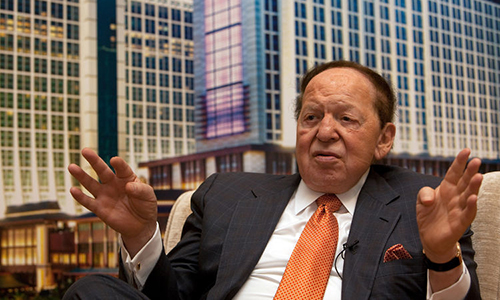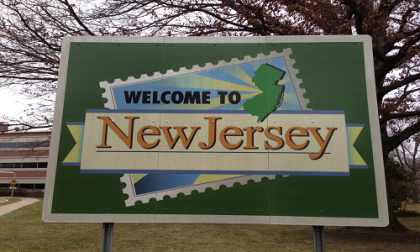New Jersey Sues DoJ for Answers About Sheldon Adelson’s Involvement in Wire Act Opinion
This week, New Jersey Attorney General Gurbir S. Grewal announced that he has filed a lawsuit against the United States Department of Justice for dragging its feet on a Freedom of Information Act (FOIA) request from New Jersey, which wants to see documents relating Sheldon Adelson to the recent new opinion the DoJ issued on the Wire Act.
DoJ Reverses the Reversal
You probably know the story by now. For the first 13 years of online poker’s history, the Department of Justice leaned on the Wire Act to say that online gambling was illegal. The Wire Act’s text pretty clearly only addresses sports betting, but nevertheless, the DoJ interpreted it differently. That didn’t stop online poker rooms and casinos from accepting U.S. customers for many years, but there was always a gray cloud hanging over the industry. In late 2011, the DoJ’s Office of Legal Counsel (OLC) issued an opinion, saying that the Wire Act, lo and behold, only applied to sports betting.
This opinion opened the door for states to legalize and regulate online gambling within their own borders and a few states have done so. In November, though, the OLC – now under the Trump administration – looked at the Wire Act again and said that, wait, it makes all interstate online gambling illegal. This has made states that have already legalized some form of online gambling, as well as those who are looking into it, quite nervous. Some have interstate online poker networks (legal ones), but even those who limit their gambling to within state borders may have internet traffic, like financial transactions, routed across borders, even if those communications originate and terminate in the same state.
 Surprise! Sheldon Adelson’s Fingerprints Were Found
Surprise! Sheldon Adelson’s Fingerprints Were Found
It seemed fishy that the OLC all of a sudden evaluated the Wire Act again – in a conservative administration – and came to a completely different conclusion than it did seven years prior. And according to a Wall Street Journal report, it was definitely fishy, as it was prompted by Sheldon Adelson and his lobbyists. From the WSJ report:
In April 2017, one of the lobbyists sent a memo to top officials in the Justice Department, arguing that a 2011 opinion that benefited online gambling was wrong.
Officials in the department’s Criminal Division, in turn, forwarded it to the Office of Legal Counsel, which had issued the opinion, and asked attorneys there to re-examine their stance that a law on the books for decades didn’t prohibit online gambling, according to documents and interviews with people familiar with the matter.
The DoJ denied any Adelson influence, but the WSJ added, “Earlier this week, the Justice Department said neither Mr. Adelson nor any outside parties were consulted on its recent decision. But department officials said that they were in possession of the legal analysis from Mr. Adelson’s team after being asked about it by the Wall Street Journal.”
New Jersey Wants Answers
In a press release, the New Jersey Attorney General said:
Online gaming is an important part of New Jersey’s economy, and the residents of New Jersey deserve to know why the Justice Department is threatening to come after an industry we legalized years ago. It’s especially important that we figure out whether this federal crackdown is the result of a lobbying campaign by a single individual seeking to protect his personal business interests.
The Attorney General’s office briefly explained this century’s history of the Wire Act (more briefly than I did) and then went into the FOIA request:
Several weeks later, on February 5, 2019, Attorney General Grewal responded to DOJ with a letter characterizing the new opinion as an unfounded “about face.” On the same day, Attorney General Grewal filed a FOIA request seeking documents regarding press reports that DOJ’s decision was the result of intensive lobbying efforts by Adelson, who reportedly opposed the expansion of online gaming as a threat to his brick-and-mortar casino businesses.
In March 2019, DOJ confirmed that it had received New Jersey’s FOIA request and that it would be granted expedited processing. In its initial request, New Jersey made clear that expedited processing was particularly important for this case, given that the new DOJ opinion will go into effect on June 14, 2019.
“To date, DOJ has provided no records in response to New Jersey’s request and provided no legal grounds for withholding responsive material.”
None of this should really come as surprise, as the current administration isn’t good for much except corruption, incompetence, and stonewalling. The Attorney General’s office even points out that the Department of Justice’s FOIA guide says that an expedited FOIA request is supposed to be fulfilled within 20 days. An exception can apparently be made for “unusual circumstances,” but the DoJ hasn’t indicated what those are in this case.

















COMMENTS